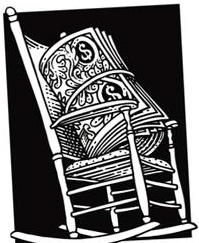- Belgium comes to Yamashita Park
- Residential Villa in Phuket Entices Remote Workers With Long-Stay Rates
- Rare pieces of French glass art at the Mirai Museum of Art
- Feast on fresh fish and seafood at the 2024 ‘Sakana’ Festival
- Would you like to ride in a Louis Vuitton gondola lift?
- Naked Snow Aquarium
- Festive lights at Yomiuriland will get you feeling the holiday vibes
Do you have a retirement plan?

Late last year, the Japanese government and business groups started discussions on the need to raise the retirement age from the present 60 to 65. According to the Labor, Health and Welfare ministry, one in four of the working population are approaching or now past the age of mandatory retirement. The major sticky issue confronting Japan now is its graying society and increasing difficulty of the government to meet its social security payments. Japan’s pension scheme is in trouble. This is why the Ministry is asking companies to rehire retirees as a countermeasure to the growing burden of pension payment.Although some companies have done so by offering reduced wages, other employers still prefer to hire younger workers. The inevitable questions the working class who are 10, 20, 30 years to the mandatory retirement age, should be asking are “what will I be worth when I retire?”. “ What if the pension plan no longer exists by the time I retire?” Congratulations if you have a retirement plan. If you do not, there are ways to turn things around.
Back up plan
Take a moment to think, create and act on a realistic back up plan to shield you from any unforeseeable life-changing situation. The earthquake last year has compelled a number of companies to relocate outside Japan. Due to revenue loss, some businesses had to shut down offices and lay off its workers. If you happen to be an employee of an industry affected by the ripple effects of the earthquake, consider yourself vulnerable to being made redundant any time by the company you work for. If you run your own business, there’s a risk posed too by an unstable business climate. No one’s ever safe in a bad economy. That is why everyone needs a back-up plan.How much to save
According to most financial advisors, if you are in your 20s, you should be stashing away about 15% of your net income. That means if you are starting saving in your 30s, you need to be increasing the amount to bridge the gap.
Time Deposit
The general assumption by most people is that the more money you put away as time deposit, the higher the interest it earns. False. Not in Japan. The interest yield rate for time deposits (”Teikiyokin”) at Japanese banks is only 0.02 percent per annum (before tax) on average. Time deposits here have low interest rates compared to other countries but so too is the risk. You are better off investing your money in other financial products.
Investment
Having stashed away some savings does not mean your retirement years will be in order. Have you considered the rate of inflation and taxes? The amount you save today will have a different value say 20 years from now. Investing in corporate stocks or bonds provides a higher rate of return but are generally considered riskier.
When stocks and bonds depreciate, real estate increases in value. Owning real estate is an excellent hedge to inflation. As a result of the economic downturn, there are now many foreclosed properties in the market waiting to be bought. In Japan, rent is high while the interest on house loan repayment remains low. If you are investing for cash flow purposes, the rent will take care of your mortgage payments plus have some extra left. In Japan, each time the property is rented, the tenant customarily pays the landlord a security deposit which is anywhere from 1-2 months of rent. At times, another 1-2 months’ gratuity fee is added. Take your time in researching on properties that will possibly generate future profit to speed up your retirement fund.
Two breadwinners in the family
Over the last three-four decades, there has been a paradigm shift in the area of family economics. As more and more couples aim at an upgrade in lifestyle, the more acceptable it has become in society for women to work. The economic situation has changed the mindset of people especially in urban cities like Tokyo where the standard of living is high. Families with two breadwinners enjoy financial freedom and a higher disposable income. Obviously with more household income, not only can you finance better the education of your children, the time to save up on retirement also becomes relatively shorter.
Career upgrade
Polish your resume and upgrade your knowledge by embarking on high level studies. Many headhunters admit that the level of one’s experience and education play a significant role in determining salary. Many people have been passed up for promotion only because of educational attainment. The higher salary you can get in your peak working years, the more money there will be to put away for retirement.
Profitable Ideas
Albert Einstein once said “Imagination is more important than knowledge”. Many big businesses today started from a small idea like Apple, Starbucks, eBay, etc. A number of successful business ideas simply came from a fun hobby fueled by passion. If you have a knack for creating something that can turn into a profitable business, engage the interest of people who can help you turn it into a cash cow.
Good Debt vs Bad Debt
Not all debts are bad. It’s a good debt when you borrow money to fund a project or purchase something that will multiply in value over a period of time like real estate or hard assets. Bad debt is when you borrow money to buy something consumable or a thing that depreciates in value like purchasing items or services through a credit card. As you approach retirement, you should be getting rid of bad debts and work on being cash positive.
Where to retire
The future value of your retirement fund has a lot to say about the lifestyle you can afford when you approach your winding down years. If you have not done much to save enough money to see you to retirement, your next option will be to relocate to
a country where the cost of living is low and get a fairly decent value for your money. International Living reports that the cheapest retirement haven today are Ecuador, Panama, Malaysia, and Mexico.
Lastly, the two most important things to remember in successful retirement planning is health and commitment.
Info
internationalliving.com
http://www.liveandinvestoverseas.com/around-asia.php
http://argentumwealth.com/retirement-planning
http://money.cnn.com/retirement/
http://www.entrepreneur.com/startingabusiness/businessideas/index.html
http://www.springwise.com/springwise/top-10-business-ideas-opportunities-2012/











